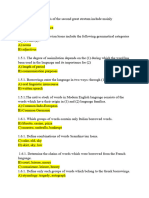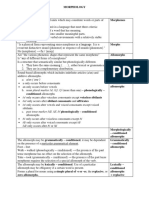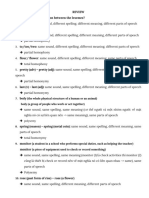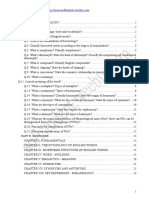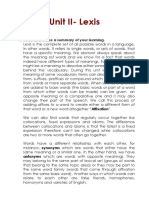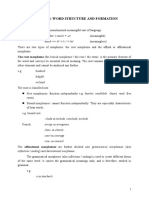Paper one task one:
Provide the term for the following defini7ons:
derivational bound morpheme
1) A part of a word with recognizable meaning/use which cannot stand alone. E.g., un" as in unhappy.
2) The linguis7c term for what are also called "portmanteau words" - ie words which have been coined
by using parts of two other words - usually the beginning of one and the end of another. E.g., smog blended words
3) "Opposites" which have an either/or rela7onship. E.g., child/adult. complementary antynoms
4) A lexical rela7onship in which words are in a part - whole rela7onship. E.g., head, arm, leg etc are all
parts of the body. meronymy
5) A word that has a similar form and pronuncia7on, and the same meaning in English and the learner’s
L1 (usually because they derive from the same root word in another language). cognate
6) Words which are considered as a single lexical item, although made up of two words which,
elsewhere, could be used separately.
compound words
Paper one task five (lexis analysis):
Comment on the form of the following words in bold:
compound noun, singular, n.+n., open "two words",
dehyphnated
1) She helped me to stand up and drove me to the coffee shop to get a drink.
2) I decided to get a drink and gave the waiter a big )p. lexical free morpheme, singular
3) It was amazing to picked up hitchhikers. compound noun, plural, closed "
th single word, dehyphnated, "-s"
4) Did you know that 14 of February is also the generosity day? inflectional bound morpheme, "-
er" inflectional bound morpheme
noun, positive connotation,
derived from the adjective "
generous", "ity" derivational
bound morpheme

